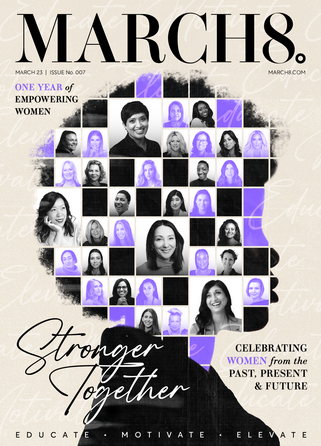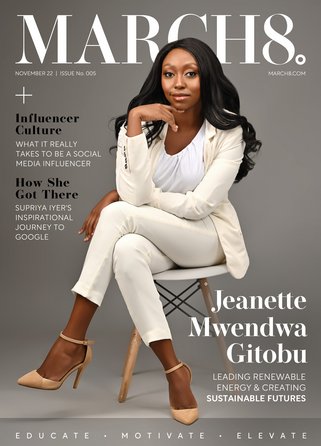8 minutes with Bobbi Pickard, CEO of Trans in the City

Bobbi Pickard, CEO of Trans in the City, came out as transgender in her private life 30 years ago. Despite this, it took almost 25 years for her to come out in the workplace. We sat down with Bobbi to discuss her pioneering journey as well as the crucial importance of trans and non-binary awareness to create inclusive environments where individuals can be their authentic selves in the workplace.
Hi Bobbi! Please tell us more about yourself and Trans in the City
I started my career in the early 90s – so I feel old! I first started out at British Aerospace and moved to numerous other companies, including Kodak, Computer Weekly and bp. I came out as transgender professionally about five years ago – I say ‘professionally’ because I had come out as trans in various aspects of my life years beforehand, just not in the workplace. When I first came out, being trans could end your career, which was one of the main drivers for me starting my own business in the early 2000s. For many people, it can still mean this today.
When, in 2017, I came out at bp, everyone was wonderfully supportive. I was given the flexibility to help train and develop people – to really push the envelope of awareness and understanding within the organisation. From this, my confidence grew and I was able to convince five other companies to do an event during Trans Awareness Week, which ended up being a massive success. From there, I came up with Trans in the City as a way to make global corporates collaborate on trans and non-binary awareness because, although some organisations have role models or a lot of resources to raise awareness, many smaller companies didn’t have either of those and it was causing a huge disparity.
Why is it so important to advocate for trans and non-binary people?
It’s vital. Awareness and education about trans and non-binary people are very low in our society in general. It’s essential to change this as it's costing trans and non-binary people their mental health, and in some cases, their lives. We’re working against a headwind of the printed press and broadcast media that's trying to force misdirection about trans and non-binary people and it's essential that we can get the truth out to people. With Trans in the City, we bring big companies, small companies and all the companies in between together to demonstrate best practices, role models and free resources to try to make an impact. To show that trans and non-binary people are just people and of value to our businesses.
When I came out, there were hardly any trans or non-binary role models in business, but unless you can see someone else like you whatever, you do will feel like a complete leap into the unknown. There are a few of us now which is wonderful, but the emotional and mental weight that falls on those few is huge. In lots of cases, we’re flooded with requests and asked to talk about things that are incredibly personal or traumatic. However hard or exhausting it is for me, it’s something I’m driven to do because I don’t want another person to tread the hard path that I had to.
So how do you cope with being a role model?
It’s very hard work and my primary method to cope with things emotionally was just to work even more. I’m just learning to be honest about how I feel and that’s a challenge after so many years of not having the privilege to do that. I’m getting better at not doing the 16 or 18-hour days seven days a week, learning that it's okay to do things for me, that I am worth enough to do that. Now I know that it’s okay to admit to people when I feel rubbish.
It can be very hard being in the trans and non-binary community – I’ve lost six people to suicide over the years, so it can seem very emotionally tough; I carry some survivor's guilt over me still being here. Sometimes it’s a lot of weight to carry, but it’s so important to do what feels right to cope, for example, you may just have to shut yourself off from everyone and cry. It’s about doing what you need to get through.
What’s more important is to find a support system. Find friends that you can be completely open and honest with about how you’re feeling, so you can have an ear to talk to even on the hardest of days.
How can individuals find or create support systems at work if there isn’t already one in place?
This can be a challenge, but a lot of companies have employee resource groups (ERG), so I would definitely recommend joining one. If they don’t have a strong trans presence, then get in there and make one. I feel ERGs should always be pushing the boundaries of the organisation. If it’s a soft and cosy place for an organisation, something isn’t right, they should push companies to be better.
If your employer doesn’t have an ERG, then reach out to other trans, non-binary or LGBTQIA+ employees in your company or industry to start one. And if you still can’t find anyone, reach out to me and I’ll find you some people from Trans in the City. Anyone that's trans, non-binary or an ally can join Trans in the City to meet hundreds of other trans and non-binary people – we’re all here to support each other.
How did you find coming out as trans in the workplace?
Transitioning is hard, painful and emotional, but it’s vital nonetheless, as it means people are able to be their true selves. Everyone focuses on the physical transition, but it was the social side that I found the most challenging – receiving scrutiny and sometimes abuse from others. But, like for many trans people, it was the individuals around us and for me bp Pride that really made a difference.
For example, I used to get massively anxious about coming to work, so much so that a manager overheard me telling someone else in a conversation. She had an area where she and her training team sat in a really quiet building and she gave me that sanctuary to help reduce my anxiety. People would stop me on the way to the canteen and give me a hug to make me feel better, lots used to regularly check on how I was doing – it was those interactions that got me through the tough times.
It’s been a wild journey, but I’m so happy that I can now be myself. It’s given me my life, rather than giving me my life back. It’s given me something special that I never thought I’d be able to experience; being me.
On the topic of being your true self – how important is it for individuals to be themselves in the workplace?
This isn't something that's just limited to trans and non-binary people, but when we pretend to be somebody we’re not, we project an image of somebody else. Every comment and action that we say or do has to be filtered through that projection to ensure we’re still aligning with that image. It’s exhausting! This also reinforces low self-esteem, strengthening the idea that white, straight and cisgender is the correct way to be.
In terms of business, we know that organisations that allow individuals to be their true selves thrive. They’re more innovative, have more effective teams and they tend to generate more profit. So, yes, it’s the right thing to do morally, but it’s also the right thing to do for your business.
When we look at students joining university this year, 20% identify as LGBTQIA+ and 24% identify as questioning – so almost half. We, as businesses, need to create environments that will be welcoming to these individuals and we need to start now because the changes needed won’t happen overnight. These individuals will join companies that are inclusive to them, so if businesses don’t take inclusivity seriously, they’re potentially cutting off half of their future talent pool.
Many companies look for quick wins and low-hanging fruit when it comes to DEI, but they don’t exist anymore, and when they did, they were done 10 years ago. There are no shortcuts now to creating inclusive cultures, just hard work and businesses need to act now.




